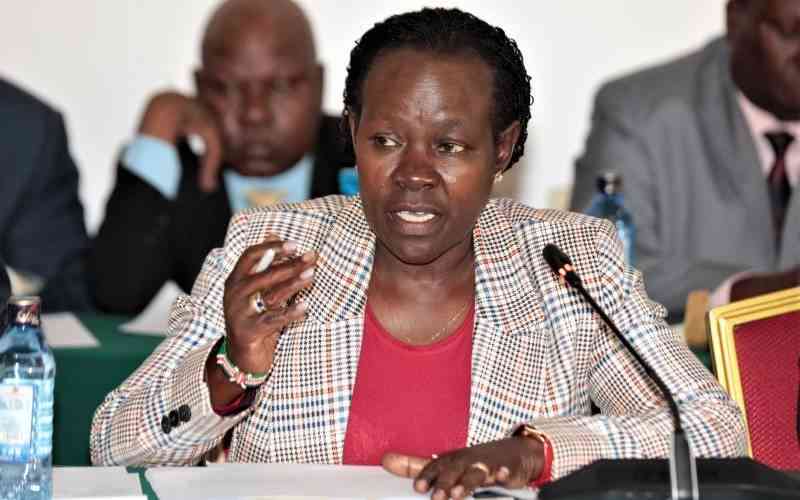×
The Standard e-Paper
Fearless, Trusted News

TVETs PS Dr. Esther Mworia when she appeared before the National Assembly Education Committee on the budget estimates in Nairobi on Monday 15th, 2023. [Boniface Okendo, Standard]
Plans are underway to review the Technical and Vocational Training (TVET) curriculum to align with the country's bottom-up economic agenda.